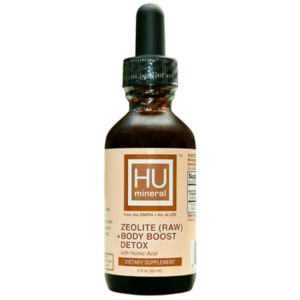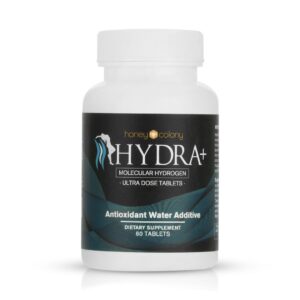On February 4, 2021, the Subcommittee on Economic and Consumer Policy made public the results of a comprehensive investigation on the presence of cadmium, arsenic, lead, and mercury in four popular brands of baby food. These are heavy metals in baby food can wreak havoc on children’s brains. Since their gastrointestinal tract has a higher nutrient uptake rate, babies are more vulnerable to the impact of toxic exposure. Among the horrible, lifelong, and disabling neurologic disorders they can develop after ingesting heavy metals is autism.
A novel way of discovering whether autism may be linked to heavy metal exposure is by examining shed baby teeth. Medical specialists use lasers to pinpoint the growth rings generated during various developmental phases. Researchers found that children with autism had significantly higher concentrations of lead in their bodies. “A lot of studies have compared current lead levels in kids that are already diagnosed [with autism]. But measuring something the children were exposed to long before diagnosis is a major advantage,” says Cindy Lawler, Ph.D., head of the National Institute of Environmental Health Sciences.
Transparency Of Baby Food Companies
The investigators asked seven baby food manufacturers to share the results of their internal studies on heavy metals. However, only four agreed to participate: Beech-Nut Nutrition Company, Gerber, Hain Celestial Group, and Nurture. The other three, Walmart, Sprout Organic Foods, and Campbell, refused to participate. This raised questions concerning their honesty, ethical conduct, and transparency.
A class action lawsuit was filed against Sprout Organic Foods in the spring of 2021. It alleges that the manufacturer has a “negligent, reckless, and/or intentional practice of misrepresenting and failing to fully disclose the presence of dangerous substances” in baby food. The Subcommittee stated that even limited independent testing revealed the presence of toxic metals in its baby food.
The Unsettling Findings Of The Congressional Report
The four heavy metals that were tested include arsenic, cadmium, lead, and mercury. These are safe limits for each of the four heavy metals:
- Arsenic, the safe limit is 10 ppb (parts per billion),
- Cadmium, it is five ppb,
- Lead, the safe limit is five ppb,
- Mercury, it is two ppb.
Over 25 percent of the baby food Nurture tested before selling had over 100 ppb arsenic. Hain Celestial Group used ingredients with up to 309 ppb arsenic. Furthermore, Beech-Nut Nutrition Company would include food additives containing over 300 ppb arsenic to enhance its products’ “crumb softness.”
Lead, one of the most dangerous heavy metals out of the four, was found lurking in the baby food of the latter company at a shocking concentration of 886 ppb. Moreover, Hain Celestial Group allowed ingredients with 352 ppb lead and 260 ppb cadmium to enter the manufacturing process. Even worse, the Subcommittee on Economic and Consumer Policy also discovered that none of the baby food manufacturers tested for mercury.
How The FDA Fits In
The U.S. Food and Drug Administration (FDA) is partially responsible for the leverage baby food companies have over the heavy metal levels they allow in their products. The agency has no regulation in place for cadmium, lead, or mercury in baby food. The only type of baby food in which arsenic is regulated is infant rice cereal.
Even so, the limit the FDA set as “safe” is 100 ppb, which most health agencies agree is too high. Nevertheless, shortly after parents and authorities became concerned about the presence of heavy metals in baby food, the FDA devised the Closer to Zero plan. This strategy will allegedly minimize the concentration of heavy metals in these products.
The Closer To Zero Plan
The Closer to Zero plan is implemented in four steps, two of which are unnecessary:
- Evaluate the scientific basis for action levels,
- Propose action levels,
- Consult with stakeholders on proposed action levels, including the achievability and feasibility of action levels,
- Finalize action levels.
Why It Falls Short
The first step the agency intends to take is redundant. We already know the safe limit for each of the four heavy metals from reputable medical studies and health agencies. The second step of the FDA’s strategy is similar, entailing proposing action levels when we know what the interim reference levels are for these toxic metals.
Only the third step of the Closer to Zero plan yields some appropriate action. This is important, as the FDA must ensure that all baby food manufacturers have access to practical measures to keep the levels of heavy metals at a minimum in their products. There are numerous practices baby food manufacturers can use to ensure children will not ingest dangerous heavy metals, such as:
- sourcing rice from crops grown on soil with low-arsenic content
- using raw ingredients from organic farmers that alter irrigation practices
- regularly testing baby food for heavy metals and other toxic contaminants
- using strains of food that are less likely to absorb a high concentration of heavy metals
The final step of the Closer to Zero plan is finalizing action levels, which can be completed during the previous phase. It involves routine monitoring of data to make any necessary adjustments. This is crucial, as periodical monitoring is the only way the agency can make sure baby food companies don’t attempt to skip heavy metals testing or engage in other dubious, unethical practices.
Urgency To Take More Radical Action
The FDA estimates that the Closer to Zero plan would become effective in April 2024, which, naturally, many find unacceptable. Parents need clean, non-toxic food to nourish their babies immediately. Because this strategy will take so long to be completed, some have already shown their disapproval. A coalition of 24 Attorneys General petitioned the FDA on October 21, 2021, to make setting maximum limits for arsenic, cadmium, lead, and mercury a priority.
Led by New York Attorney General Letitia James, the coalition found the Closer to Zero plan laudable. At the same time, they criticized it for being too slow and lengthy and for not including more aggressive timelines. Attorney General James notes:
Every day and across the country, baby food companies are selling products containing dangerous lead levels and other toxic metals, and urgent action is needed to stop it. There are common-sense, science-based actions that can drive down the levels of heavy metals in baby foods, which is why we are calling on the FDA to take these actions as soon as possible.
Solving The Issue Of Heavy Metals In Baby Food Once And For All
On March 26, 2021, Congressman Raja Krishnamoorthi introduced the Baby Food Safety Act bill. Its primary purpose is to set limits for heavy metals in baby food right away. Also, if the bill enters law, it would require the FDA to be more involved. The agency would have to periodically review and, if necessary, lower the safe limits for heavy metals. Another condition is that facilities that handle infant and toddler food must have controls and strategies to ensure their products adhere to the safe limits on toxic metals.
Baby food facilities would also have to make available to the general public information such as the results of tests for heavy metals in their products. Lastly, the Centers for Disease Control and Prevention (CDC) would have to carry out public awareness campaigns regarding the risks of toxic metals in baby food. At the moment, the Baby Food Safety Act of 2021 has not passed the Senate. If it becomes effective, parents would no longer have to be concerned about the risk of their children developing autism due to eating tainted baby food.
The Toxic Baby Food Replacement Initiative
As a recently launched program, the Toxic Baby Food Replacement Initiative targets parents of infants and toddlers who no longer know what to feed their children. The idea belongs to the attorneys and legal team of Environmental Litigation Group, P.C.–a law firm specializing in toxic exposure. By collaborating with multiple ethical baby food companies such as Fresh Bellies, Smushed Organics, and Once Upon a Farm, the Toxic Baby Food Replacement Initiative can offer parents clean, nourishing products for their children.
If you are also a parent who would like to receive some baby food manufactured ethically, you can fill out the form at the bottom of the official page of the initiative. So far, hundreds of parents have received baby food via this applaudable program.
About the Author
Jonathan Sharp is the Chief Financial Officer at Environmental Litigation Group, P.C. The law firm, located in Birmingham, Alabama, specializes in toxic exposure. His primary responsibilities are client relations, managing firm assets, collecting and distributing funds, financial analysis, and case evaluation. Jonathan Sharp finds his job rewarding, as he has the chance to help people injured by hazardous agents obtain the compensation they deserve for their unjust suffering.
The post The FDA’s Ongoing Failure To Regulate Heavy Metals In Baby Food Has Created A Health Crisis appeared first on HoneyColony.


